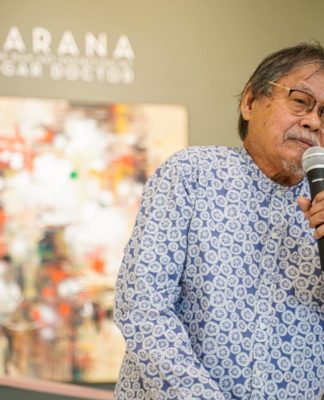WHILE the University prefers teachers with postgraduate degrees, some administrators and professors do not believe that having a master’s degree or a doctorate is equivalent to efficient teaching.
In an interview with the Varsitarian, Vice-Rector for Academic Affairs Dr. Armando De Jesus said teaching efficiency does not rely on postgraduate degrees alone, but also on the teaching methods of educators and efforts of the University to improve on them.
“A master’s degree or a (doctorate) degree is not a guarantee that you are a good teacher, although we require that,” De Jesus said. “What’s the use of having a master’s or doctorate degree if you do not know how to teach? The purpose is not for the teacher to teach, but for the student to learn.”
De Jesus added that hiring teachers with master’s or doctorate degrees only increases the probability of teaching efficiency, rather than ensuring it.
Prof. Luz de Guzman, Engineering Sciences department head, said a postgraduate degree “does not warrant a better teaching methodology.”
“It does not always follow that if you have a master’s degree, you are a better professor,” De Guzman said.
College of Nursing Prof. Elmer Hibek said teaching competence is not dependent on the teacher’s degree alone.
“Not all professors who have master’s degrees are competent, it also depends on the person and the school where he took the degree,” he said.
Meanwhile, postgraduate degree requirement aside, the University hopes to improve teaching efficiency through standardization of syllabi and seminars on teaching methodology.
“In General Education, we are stream-lining the syllabus, which includes the course content and the methodology of teaching, plus the instructional aids, so by improving the syllabus, we are hopefully also improving teaching in the classroom,” said De Jesus.
Ninety per cent by 2011
De Jesus said 65 per cent of the University’s teachers last school year had at least a master’s degree compared with 51 per cent during the academic year 2003 to 2004.
De Jesus added that UST’s aim for a “90-per-cent-postgraduate-degree-holder” faculty is attainable.
“If we can attain our goal of 75 per cent for 2005 to 2006, then we’re only left with 15 per cent of the faculty with no postgraduate degrees,” he said. “It is attainable, provided we really help in screening, and faculty development.”
Although Level 4 accreditation, which UST aims for, requires the entire faculty to have post graduate degrees, the University can only go for a 90 per cent goal, because of scarcity of master’s degrees in some programs.
“Ninety per cent is the institutional goal, although the ideal is 100 per cent,” De Jesus said. “There are programs, like Architecture and Journalism, where the teachers may be practitioners, but are not postgraduate degree holders, since not a lot of universities offer master’s or doctorate degrees for their programs.”
Nevertheless, some colleges are still pursuing the enhancement of their faculty profile with programs like Zero B.S. by 2004 of College of Science Dean Dr. Fotunato Sevilla III.















